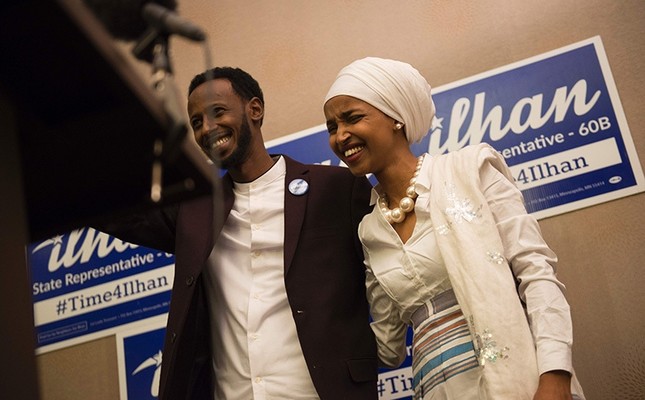A jolt of truth from Robert Spencer.
January 12, 2018

[To order Robert Spencer's "Confessions of an Islamophobe," CLICK HERE.]
If it weren't for the inherent triumphalist violence of Islam, Robert Spencer would probably never have been born. His maternal grandparents were Greek Christians from what is now Turkey, forced into exile by the Muslim rulers of the Ottoman Empire, one of whom declared in 1916 that “we must finish off the Greeks as we did with the Armenians.” If you've ever read Paul's epistles to the Galatians, Ephesians, or Colossians, you know that there have been Christians in that part of the world – Asia Minor, Anatolia – since the very beginning of Christianity; yet because of the Koranic directives to crush, conquer, and control, Spencer's grandparents ended up in America, where, in a touch of grand- historical irony, the little Greek Orthodox church in which his mother was baptized ended up being destroyed in the World Trade Center attack on 9/11.
There are, then, as Spencer writes in his new book, Confessions of an Islamophobe, “very good reasons to be an Islamophobe, that is, to be concerned about Islam for the devastation that it brings to the lives of human beings both Muslim and non-Muslim.” Spencer has, of course, been called an Islamophobe ever since he began writing about Islam; leading figures on both the left and right have accused him of harboring a personal animus against Muslims. This is a charge he fiercely denies, and no honest, sane, and intelligent reader of his more than dozen books would ever believe him to be capable of such bigotry. But he's now decided that he might as well embrace the label of “Islamophobe,” given that he, as much as anyone on the planet, knows just how much the Islamic ideology and its most determined adherents deserve to be feared.
“By charging 'Islamophobia' whenever anyone dares notes any connection between Islam and terrorism,” Spencer points out, “the American Left and establishment conservatives are shouting down, and shutting down, a legitimate argument, and indeed, an argument that we must have sooner or later if we are going to survive as a free society.” Perhaps, he suggests, accepting the label “Islamophobe” – and redefining it to refer not to “vigilante attacks or harassment of innocent Muslims” but to signify “sober and realistic appraisal of the nature of Islam and the ways in which it endangers free societies and free people” – can help rob the term of its power and thus make it more possible for that argument to take place.
That point having been made, Spencer proceeds to substantiate, chapter by chapter, the threat that Islam represents to women, gays, Jews, Christians, secular Christians, and secular Muslims. In each chapter, he explains the specific kind of harm that Islam, when practiced in an orthodox fashion, can do to members of the group in question; he cites the scriptural warrant therefor; he provides examples, mostly recent, of this harm in practice; and he quotes from fools and knaves, Muslim and not, on both the left and the right, who, in the name of social harmony and religious tolerance, have flat-out denied the grim reality that Spencer has so fairly and meticulously spelled out.
It's this last category that makes for the most vexatious reading. However familiar one may be with the iniquitous directives set forth in the Koran, and however accustomed one may have become to the monstrous acts committed in its name, one never gets entirely used to the audacity with which true believers seek to whitewash the faith, or, for that matter, to the alacrity with which naive, stupid, cowardly, and/or self-deluding infidels in the media, academy, government, police, military, church, and other institutions echo their brazen lies.
For example, after the Orlando Pulse massacre, Loretta Lynch's Justice Department tried to get away with omitting Islamic references when releasing transcripts of perpetrator Omar Mateen's 911 calls. The Southern Poverty Law Center (SPLC) sought to pass this diabolical act of jihad off as a “right-wing plot.” A year after the massacre, gay activist Scott Simpson described the atrocity and its aftermath as having, in Spencer's words, “brought Muslims and gays together, united as victims against the forces of hatred and bigotry that Donald Trump represented.”
The bizarre conceit that Muslims and gays are allies in oppression, all evidence to the contrary, is a commonplace among self-appointed gay leaders. When the American Freedom Defense Initiative, an organization with which Spencer is associated, sought to snap San Francisco gays out of this absurd delusion by publicizing anti-gay pronouncements by Yusuf al-Qaradawi, Mahmoud Ahmedinejad, and other Muslim heavyweights on the sides of Bay Area buses, Spencer was accused of trying to “split gays and Muslims.” Even supposedly serious students of world affairs – people who recognize that ardent Muslims aren't exactly fans of homosexuality – are somehow capable of magical thinking on this front: Spencer quotes a writer for Foreign Policy, no less, who actually suggested in a 2015 article that if ISIS warriors were shown enough pictures of happy same-sex couples, they'd abjure violence against gays.
How can individuals in positions of responsibility be so deeply in denial about the fundamentals of Islam? In his last chapter, “Modern Man versus Reality,” Spencer explores the fact that when it comes to the likes of Lynch or Simpson or the SPLC, we're often dealing with people who are so habituated to civilized norms that they're incapable of processing the notion that other people – neighbors, co-workers – live by a belief system that, when lived out with full devotion, is nothing less than barbaric. Others of these reality-denying “modern” folk, meanwhile, aren't civilized at all but are, in fact, totalitarian ideologues, enemies of freedom who admire Islamic tyranny just as others, two or three or four generations ago, despite being fortunate enough to live in free and prosperous societies, gazed with fatuous admiration upon Nazi Germany, Soviet Russia, or Maoist China.
All of Robert Spencer's books have been valuable in their different ways, illuminating such specific topics as the Koran, Muhammed, ISIS, sharia, and jihad. But in Confessions of an Islamophobe he's given us a work that is at once a work of testimony more personal than any he's written before, a useful account of some of the more disturbing Islam-related events of the last two or three years, and a first-rate general introduction to the ways in which Islam's most ardent adherents and apologists imperil liberty. If you haven't read Spencer yet, this is a splendid place to start; if you've read all his books but have people in your life who need to be snapped out of complacency about Islam – and don't all of us have people like that in our lives? Isn't that the whole problem? – a few gift shipments may be in order. Every time another person in the West wakes up to the truth about the Religion of Peace, the chances increase – if only by a tiny amount – that light may ultimately overcome darkness.
Bruce Bawer is the author of “While Europe Slept,” “Surrender,” and "The Victims' Revolution." His novel "The Alhambra" has just been published.

